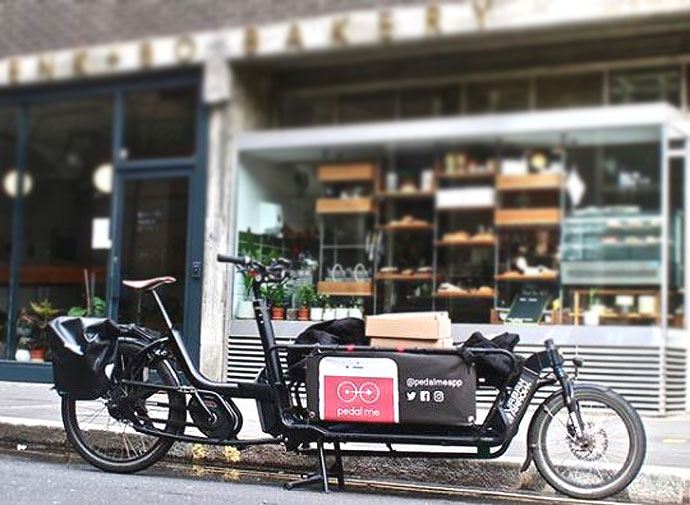
The government has announced £2 million to support the uptake of cargo e-bikes. The news comes seven years after the introduction the ‘plug-in grant’ for electric cars, which sees the buyers of battery-powered cars offered up to £4,500 off the purchase price.
The subsidy for electric cars has already cost the tax payer over £400m and for many years campaigners have argued that the omission of electric bicycles from the scheme was unjustified given the environmental and financial advantages they offer.
With a payload of 250KG, electric cargo bikes offer a practicable alternative to diesel vans for local deliveries – the fact that two can be bought for the price as a single electric car subsidy of £4,500 makes the £2m investment appear rather paltry.

Cargo bikes are not a new idea, but we have been very slow to acknowledge their benefits
The announcement about funding for electric cargo bikes is part of the international Zero Emission Vehicle Summit being held in Birmingham this week. There is little sign that the summit will also make mention of tax breaks for electric bicycles beyond cargo models. The idea of upping the £1,000 limit of the government’s cycle to work tax-break scheme to allow for e-bikes has yet to be decided upon.

Cargo bikes come in many shapes and battery assist makes possible a payload of 250KG
Jesse Norman, Minister for Low Emission Vehicles, said: “Support for e-cargo bikes will help to ensure that Britain leads the way in the development and deployment of the technologies of the future.”
“Encouraging electric delivery bikes on to our city streets will cut traffic and improve air quality, and will show how these vehicles have the potential to play an important role in the zero emission future of this country.”
The government is at the same time considering whether e-cargo bikes should be subject to a new ‘micro vehicle’ categorisation in law. It is not yet clear how this would work in practice and whether it would see them excluded from certain cycling infrastructure or required to pay vehicle excise duty.
Too little, too late
By the government’s own admission, over 40,000 people in Britain die early due to air pollution. Hundreds of schools are situated on main roads with illegal levels of pollution. Research by King’s College found nitrogen dioxide levels on London’s Oxford Street to be the worst on Earth. Dr David Carslaw, from the Environmental Research Group at Kings College London, was quoted in relation to air pollution levels on Oxford Street. He said: ‘To my knowledge this [level] is the highest in the world in terms of both hourly and annual mean. NO2 concentrations [in Oxford Street] are as high as they have ever been in the long history of air pollution.’
In this context – not to mention the hundreds of millions already spent to subsidise the buyers of electric cars to the tune of £5,000 each – the £2m investment appears paltry. Electric bicycles do not require costly infrastructure and already offer a range and and performance more than adequate for commuting and in their cargo configuration, they have the potential to remove many diesel delivery vans from our roads.
The ethical choice
The ETA was established in 1990 as an ethical provider of green, reliable travel services. Over 30 years on, we continue to offer cycle insurance , breakdown cover and mobility scooter insurance while putting concern for the environment at the heart of all we do.
The Good Shopping Guide judges us to be the UK’s most ethical provider.

Joel
Does an electric bike sold with a trailer count or will there be an approved list of models as with cars and motorcycles?
Jean-Claude
OK! But are there any useful links for the subsidy scheme?